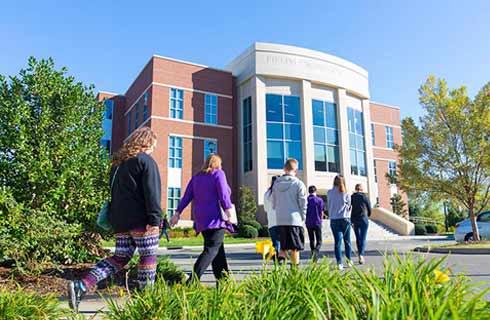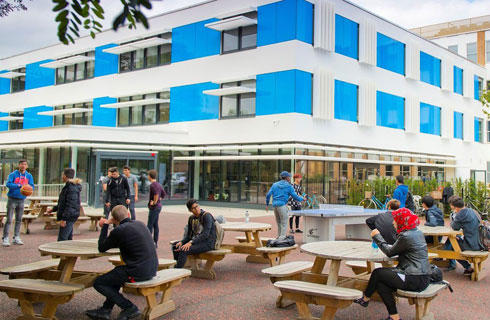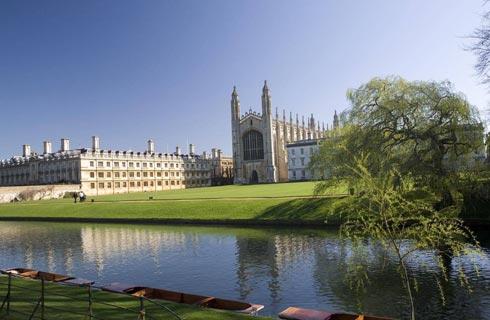地球科学(荣誉)理学学士
Bachelor of Science in Earth Sciences - Honours (Fredericton)

学历文凭
Bachelor Degree with Honours

专业院系
Earth Sciences

开学时间

课程时长

课程学费

国际学生入学条件
IDP—雅思考试联合主办方

雅思考试总分
6.5
了解更多
雅思考试指南
- 雅思总分:6.5
- 托福网考总分:85
- 托福笔试总分:160
- 其他语言考试:Duolingo with a minimum overall score of 115.
CRICOS代码:
申请截止日期: 请与IDP顾问联系以获取详细信息。
课程简介
Earth scientists, also called geoscientists and geologists, study the origin and evolution of oceans and continents. This includes the formation of mountain ranges, valleys, glaciers, and lakes. They also study the causes and effects of natural hazards, such as those created by land- and rock-slides, earthquakes, floods and droughts, sea- and lake-level changes, and volcanic eruptions.Earth scientists also investigate:the origin, migration and quality of groundwaterthe monitoring and mitigation of river and coastal erosion or floodingsea- and lake-level rise and fallclimate changeThey study the origin of Earth's natural resources and are extensively involved in the discovery and environmentally responsible development of metallic minerals, salts, water, clay, sand, gravel, cement, coal, oil and natural gas that society uses for construction of the built environment, agriculture and drinking water, communications and energy.
相关申请
 预科
预科 奖学金
奖学金 实习机会
实习机会 在校学习
在校学习 跨境学习
跨境学习 校园授课-线上开始
校园授课-线上开始 在线/远程学习
在线/远程学习
关于新不伦瑞克大学

新不伦瑞克大学 (UNB) 是加拿大历史最悠久的英语大学,位于美丽的加拿大东海岸。UNB 在研究和创新方面处于领先地位,并致力于培养创业成功人才。该校提供超过 150 个本科和研究生课程,师生比例为1:15。UNB 在全球拥有超过 10 万名在世校友,并荣获 QS 五星大学评级。每两个从高中直接升入新不伦瑞克大学(UNB)的学生中就有一个获得奖学金。该校每年提供超过12万加元的本科生奖学金。提供24/7的学术和个人支持,学生在安全的环境中得到帮助,大学随时提供安全服务。加拿大新不伦瑞克省新不伦瑞克大学(UNB)在加拿大的新不伦瑞克省有两个主要校区:一个在弗雷德里克顿,一个在圣约翰。该省生活成本低,拥有许多海滩、公园、湖泊和其他自然美景。Travel + Leisure 杂志将新不伦瑞克省评为2020年最值得去的50个地方之一。从这里出发,乘飞机一个半小时可到达蒙特利尔,两个小时可到达多伦多,开车到波士顿需要六个半小时。弗雷德里克顿校区成立于1785年,圣约翰校区成立于1964年。这是新不伦瑞克省两个最大的城市。这两个校区都是小而友好的,来自100多个国家/地区的本科生加起来超过10000人。学生的经历是有趣和难忘的,大学有120多个俱乐部和社团可供学生加入。由于注重社区和热情的文化,学生在课堂内外很容易建立起持久的友谊。
本校相关课程
其他相关课程
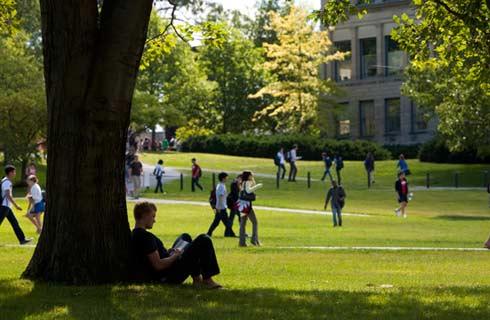
地球科学哲学博士
 滑铁卢大学
滑铁卢大学学历文凭
Ph.D.
开学日期
课程费用总额


地球科学(荣誉)理学学士
 圣弗朗西斯泽维尔大学
圣弗朗西斯泽维尔大学学历文凭
Bachelor Degree with Honours
开学日期
课程费用总额


地球科学学士学位(3年)
 劳伦森大学
劳伦森大学学历文凭
Bachelor Degree
开学日期
课程费用总额


环境地球科学(荣誉)理学学士
 阿卡迪亚大学
阿卡迪亚大学学历文凭
Bachelor Degree with Honours
开学日期
课程费用总额

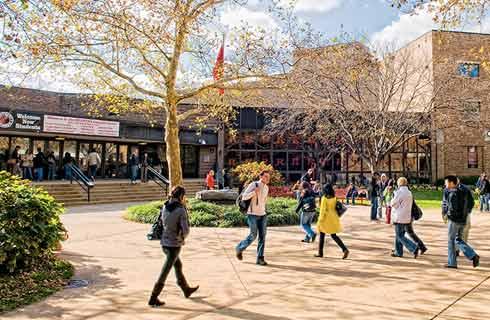
环境地球科学理学学士
 阿卡迪亚大学
阿卡迪亚大学学历文凭
Bachelor Degree
开学日期
课程费用总额


地球科学理学硕士
 布鲁克大学
布鲁克大学学历文凭
Masters Degree
开学日期
课程费用总额























